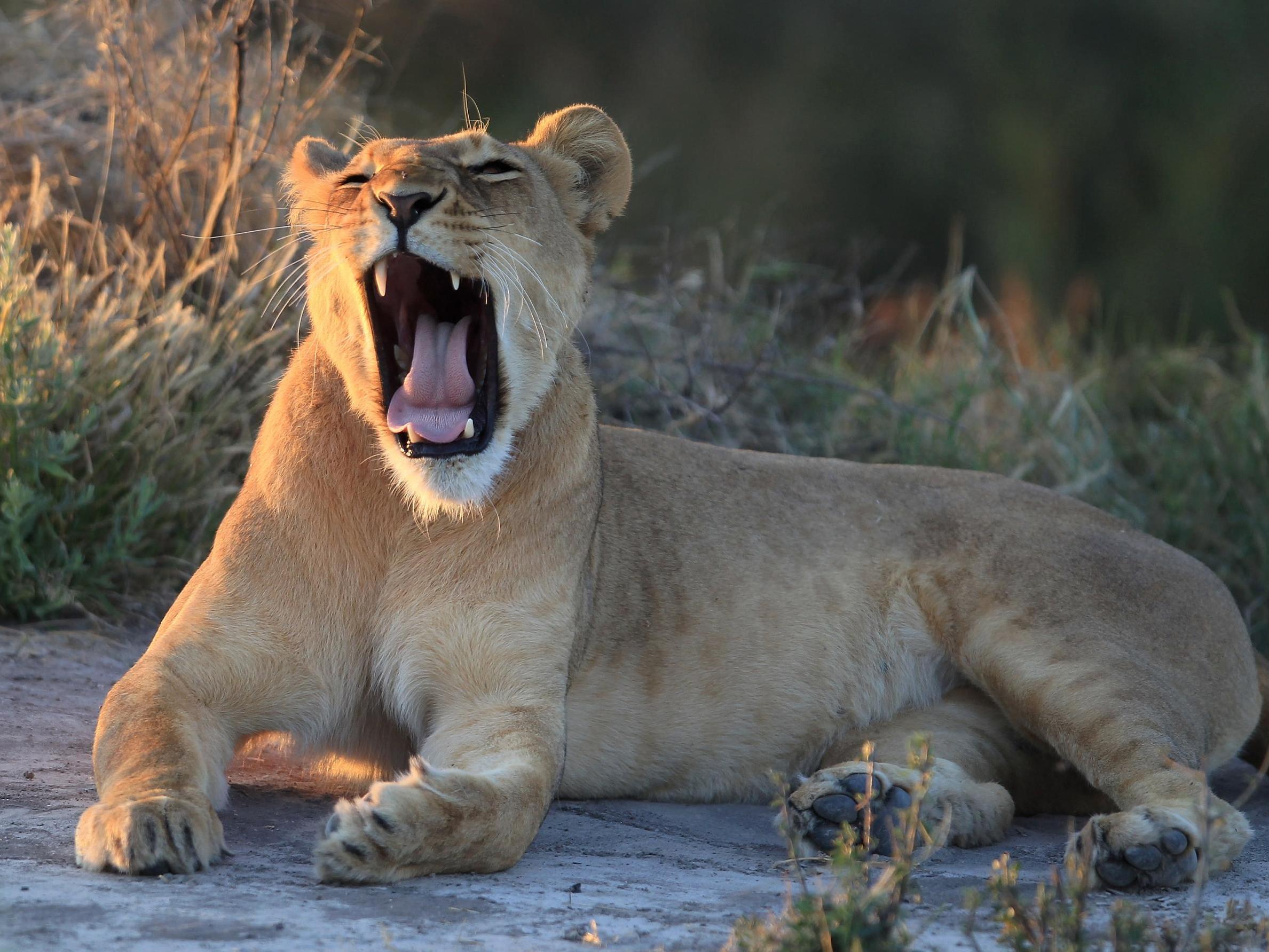Lion tears off toddler's scalp through fence at big cat farm
Child reportedly had part of her skull removed to relieve pressure on her brain

Your support helps us to tell the story
From reproductive rights to climate change to Big Tech, The Independent is on the ground when the story is developing. Whether it's investigating the financials of Elon Musk's pro-Trump PAC or producing our latest documentary, 'The A Word', which shines a light on the American women fighting for reproductive rights, we know how important it is to parse out the facts from the messaging.
At such a critical moment in US history, we need reporters on the ground. Your donation allows us to keep sending journalists to speak to both sides of the story.
The Independent is trusted by Americans across the entire political spectrum. And unlike many other quality news outlets, we choose not to lock Americans out of our reporting and analysis with paywalls. We believe quality journalism should be available to everyone, paid for by those who can afford it.
Your support makes all the difference.A lion reportedly tore off a four-year-old girl’s scalp after it attacked her and her father through a fence.
Dina-Marie de Beer was left in a critical condition after the attack at Weltevrede Lion Farm in South Africa on Sunday.
Her father Pieter was left with minor injuries when the lioness grabbed him as he was holding his daughter, Netwerk24 reported.
The family had stopped at the lion park so Dina-Marie could pet one of the cubs when a juvenile lioness grabbed the pair through a fence.
Dina-Marie’s scalp was ripped off and one of the lion’s claws penetrated her skull, the broadcaster said.
A tour guide at the farm confirmed the attack and told The Independent the father and daughter “got a bit too close, the lion grabbed him through the fence”.
He said he hoped the child would have “a quick recovery”. The owners of the farm did not return a request for comment.
Dina-Marie reportedly had part of her skull removed on Monday to relieve pressure on her brain.
Her father said it would likely be a long road to recovery.
Another man was injured after being attakced through a fence at the same farm last week, Netwerk24 reported.
In 2010 two sisters were attacked by lionesses at the Weltevreden Lion Farm, both suffering bite wounds.
The farm’s owner, Nico Roets said the lions are dangerous and wild animals, adding: “Sometimes they play a little rough.”
Campaigners have previously criticised lion farms for being nothing more than a front for trophy-hunters or for Asia’s trade in bones, which are ground down for use in fake medicines.
Tourists often take selfies or bottle-feed and pet the big cats at the farms, and Humane Society International has warned the caged animals are often deprived of sufficient food, hygiene and the ability to behave as they would in the wild.
Earlier this month, an investigation found cubs at one breeding centre were too ill to walk and many lions had been so badly neglected they had gone bald from mange.
The big cats are then used for “canned hunts” in which they are shot by trophy-hunters in fenced areas.
There are up to 8,000 wild lions in captivity in 260 breeding farms in South Africa, compared to fewer than 3,000 in the wild.
Audrey Delsink, a spokeswoman for Humane Society International, told The Independent: “This horrible incident underscores the need for the government of South Africa to shut down the lion breeding industry in the country, in order to protect both people from these ‘snuggle scam’ businesses in which they expose themselves to potential danger, and spare the suffering of thousands of lions languishing in appalling inadequate captive conditions where they are used as props for the tourist trade.”
She added: “Across South Africa there have been 28 injuries and 12 deaths from captive big cats. With mounting global condemnation of the captive lion industry, and alarm bells increasingly raised about such attacks, the South African government can no longer support this appalling industry and turn a blind eye to the cost to both people and animals. A complete shut-down of this cruel and exploitative industry is long overdue.”
Join our commenting forum
Join thought-provoking conversations, follow other Independent readers and see their replies
Comments